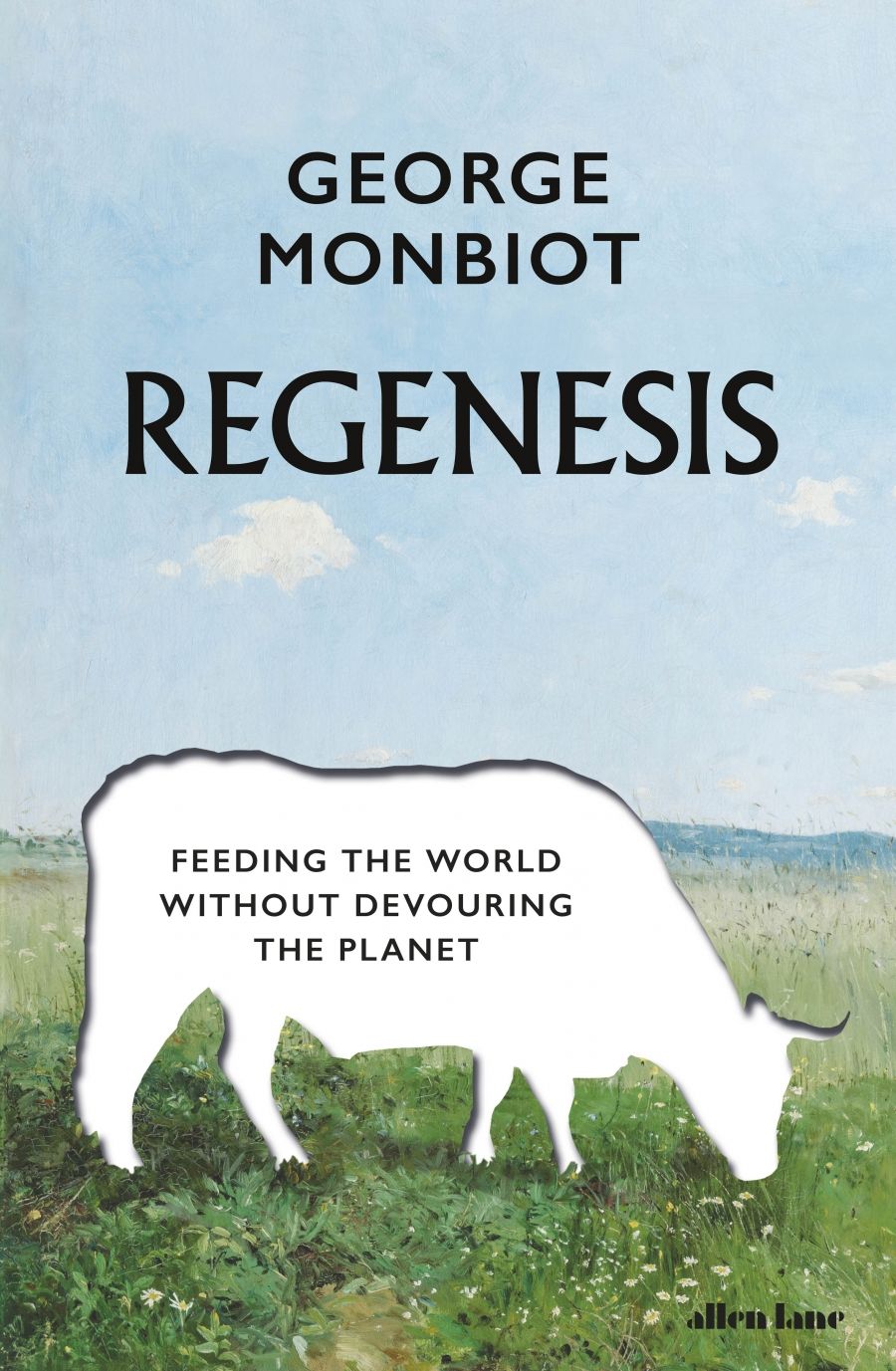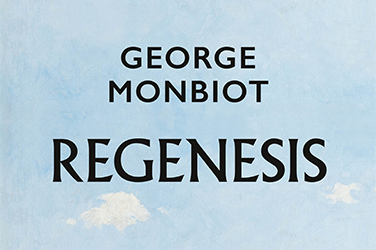
- Free Article: No
- Contents Category: Environment
- Review Article: Yes
- Article Title: A bang-up job!
- Article Subtitle: Illuminating farming myths and problems
- Online Only: No
- Custom Highlight Text:
This is British environmentalist and writer George Monbiot’s overarching theme in his important new book, Regenesis. While focusing primarily on his native Britain, Monbiot uses a wealth of research – there are almost one hundred pages of notes, and he claims to have read more than 5,000 papers and ‘a shelf of books’ – to argue that the global food production system is in a parlous state. Without comprehensive reform, Monbiot warns, we risk nothing less than the survival of our species.
- Featured Image (400px * 250px):

- Alt Tag (Featured Image): Ben Brooker reviews 'Regenesis' by George Monbiot
- Book 1 Title: Regenesis
- Book 1 Biblio: Allen Lane, $32.99 pb, 304 pp
- Book 1 Readings Link: https://www.booktopia.com.au/regenesis-george-monbiot/book/9780241563458.html
One memorable anecdote neatly encapsulates the situation. Canoeing down the River Wye, Monbiot decides to swim out on a beach upstream of Hay on the border of England and Wales. What had looked idyllic is revealed as nightmare. First, Monbiot smells chicken shit. Then, almost gagging, he stumbles and strikes his knee on the beach’s stones, emerging from the water bloodied and covered in snot-like slime. The major cause of river pollution in the United Kingdom, Monbiot tells us, isn’t industry or sewage but farming, the most detrimental aspect of which is dairy milk production. (We need look no further than the Murray–Darling Basin fiasco for evidence that our own food production-sustaining waterways have likewise been scandalously mismanaged.)
The book functions like one of those animations that takes the viewer from some sliver of suburban lawn or wild ecosystem to the Earth as seen from space, zooming out from the hyperlocal to the planetary. In the opening chapter, Monbiot describes digging up around a kilogram of soil from his small orchard in southern England. Poring over its contents, first with only his eyes, then with the aid of a loupe, he is astounded by the abundance of both micro- and macroscopic life he finds there, from various crustaceans, mites, worms, and spiders, to chilopods (centipedes), diplopods (millipedes), and species – and, indeed, whole classes of life – of which he was previously ignorant. ‘Working this tiny patch of land,’ Monbiot writes, ‘has helped alert me to the scale of the predicament we face, as the conditions that enable us to grow sufficient food begin to shift.’
These conditions, of course, include familiar threats like the climate crisis. But here Monbiot is more concerned with illuminating problems that, as he writes, ‘have scarcely ruffled the surface of public consciousness’. One perhaps surprising target is organic farming, which, at least in the United Kingdom, is poorly regulated and woefully under-policed. Where, in theory, organic farms are defined by their closing of the nutrient loop – in other words, recycling rather than leaking minerals – in practice such leakage is in many cases worse than on conventional farms.
In a similar vein, Monbiot – who has been a vegan since 2016 – skewers the fantasy that pasture-fed meat is a sustainable alternative to the factory-farmed variety. He points out that free-range livestock erodes land and displaces wild animals, and that its production is highly energy-profligate compared to, for example, soy protein. ‘If everybody ate the average New Zealander’s diet,’ writes Monbiot, ‘which contains plenty of free-range lamb and beef, another planet almost the size of Earth would be needed to sustain us.’
Other books of this kind tend to leave the discussion of possible solutions to a concluding chapter designed to offset the preceding gloom. One of the strengths of Regenesis is that Monbiot, having laid out our predicament, assays various alternatives to the status quo at considerable length. One such is the ‘stockfree organic’ farm run by the maverick Iain ‘Tolly’ Tolhurst whose near-ceaseless toil has resulted in the proving of a potentially revolutionary model of horticulture that uses no livestock or livestock derivatives, nor any added nutrients. Monbiot is clearly in awe of Tolly, who, in defiance of conventional wisdom, has been able to achieve what should be the imperatives of every farming system: high yields and low impacts.
While Tolly’s farm represents a kind of prelapsarian triumph, elsewhere Monbiot turns to technology in his search for answers to our food production crisis. Might it be that by a process of multiplying soil bacteria we could feed humanity without the need for any kind of agriculture? Monbiot certainly thinks so, writing that such ‘farmfree’ technologies – while, like everything else, imperfect – might not only convincingly replicate, and ultimately replace, the protein- and fat-rich foods we currently eat, but also lead to the creation of entirely new textures and tastes. It is a tantalising prospect in more ways than one.
Invoking the many biblical stories and secular folk tales that feature the miraculous propagation of wine, fish, porridge, and the like, Monbiot observes that humans seem to have an insatiable appetite for otherworldly solutions to the question of how to feed ourselves. But as this immensely clear-headed book shows, what we require is not magical thinking but a liberating techno-ethical shift that, fortunately for our descendants, is already underway.


Comments powered by CComment